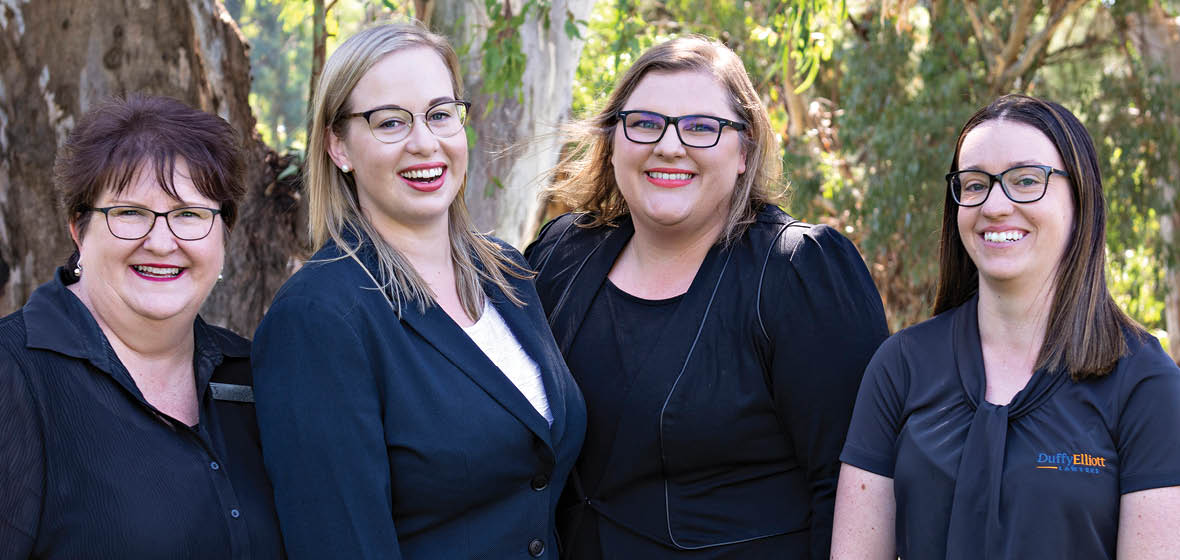As the world continues to grapple with the fallout from COVID-19, many of the state’s small law firms have been quietly booming.
Joanne van der Plaat feels almost guilty admitting it but, during the pandemic, business boomed. So much so that her firm Blaxland Mawson & Rose – known around the area simply as BMR – employed another solicitor to help handle the workload that poured into its Cooma and Bombala offices on the starkly beautiful high-altitude Monaro Plain between Canberra and the Victorian border.
“I think this region is in a bit of an economic bubble with Snowy 2.0,” says van der Plaat, one of three partners at BMR. She’s referring to the multi-billion-dollar hydropower project that will pump water uphill into dams and release it when electricity demand is high. The government approved the main works in May 2020, when NSW residents were still nervously hunkering down, unable to even take a holiday in regional NSW.
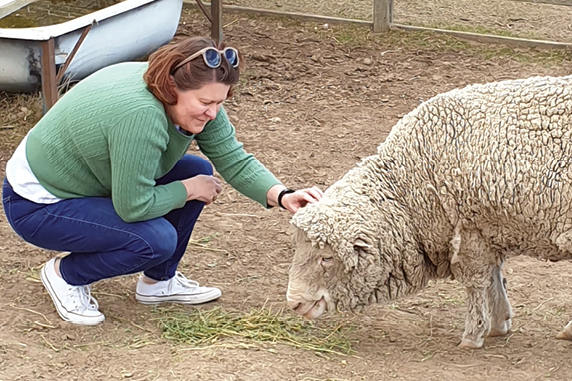
“We’ve got a massive influx of workers to the region,” she says. “For the last 18 months, any house here that could be sold has been sold, so prices have absolutely skyrocketed and there’s been a huge boom in our conveyancing side of things.”
Widespread confusion around leasing arrangements and rent moratoriums during COVID-19 also brought queries from both landlords and tenants.
Van der Plaat focuses not only on property but employment issues and was kept busy in that area, too.
“The community really tried the best it could to hang on to its staff but, yes, there was a lot of employment work [for us],” she says.
BMR’s story aligns with research conducted by Smokeball, creator of cloud-based legal practice management software. In February this year, it interviewed 134 small law firms across Australia and found that COVID affected the sector’s business revenue more positively than negatively. Some 57 per cent of respondents reported a positive impact on business revenue. Technology adoption (92 per cent) and the hunger for property (69.5 per cent) were cited as key drivers of the positive impact, followed by managing staff remotely (64 per cent) and workload (61.6 per cent).
As van der Plaat hints at, though, not all small law firms have shared in the same good fortune. The study also revealed that 43 per cent reported an overall negative impact on revenue over the same timeframe, thanks to delays in the court and legal system (75.6 per cent), burnout (61.5 per cent), work-life balance (49 per cent) and productivity (43.7 per cent).
Smokeball CEO Hunter Steele said: “Conveyancers and property-focused lawyers have certainly been the winners in COVID times, with the huge increase in property purchases and research across the country, particularly in regional areas. Given the current economic situation, this looks set to stay the pace.”
Regional Australia Institute figures support this outlook. Research released in February this year from more than 1,000 people in Sydney, Brisbane, Melbourne and Perth who were considering moving to regional Australia showed more than half wanted to make the jump within the next 12 months. While the pandemic significantly raised the desire to move to regional Australia for 22 per cent of respondents, more than half said they had already been considering relocation before the pandemic.
What was impossible for legal firms to predict was how people would respond on a personal level to a global pandemic.
“We had a rush of people wanting to do wills,” says van der Plaat. “People automatically became worried about things and wanted to get their house in order. So we made increased use of virtual technology for things like wills, powers of attorney and guardianship – we were in overdrive for those three particular documents. There were clients who hadn’t looked at their will for quite a while – one lady’s will was dated 1978.”
“We’ve got a massive influx of workers to the region. For the last 18 months, any house here that could be sold has been sold, so prices have absolutely skyrocketed and there’s been a huge boom in our conveyancing side of things.”
Joanne van der Plaat
Van der Plaat’s good friend Melinda Twyford, an employed solicitor at Clark Rideaux Solicitors in Bega on the NSW South Coast, experienced the same thing when the pandemic first struck.
“We saw a lot of older people who are healthy – they don’t feel their time’s up yet – but [the pandemic] encouraged them to get their stuff in order just in case,” says Twyford. As 2020 rolled on, real estate work went “through the roof”.
“I would get listing advice just to prepare a contract and then by 2pm or 3pm that afternoon, I might already have sales advice,” says Twyford, who had a tempting offer for her own home last year but ultimately turned it down.
“Houses that might have gone for $600,000 or $700,000 18 months ago are now going for over a million. We’ve got a lot of people from Victoria, Canberra and Sydney wanting to buy in the area. People from Victoria, especially, wanted a place in case they had to isolate or, if they were going to have a lockdown, they were going to get out and come to NSW.
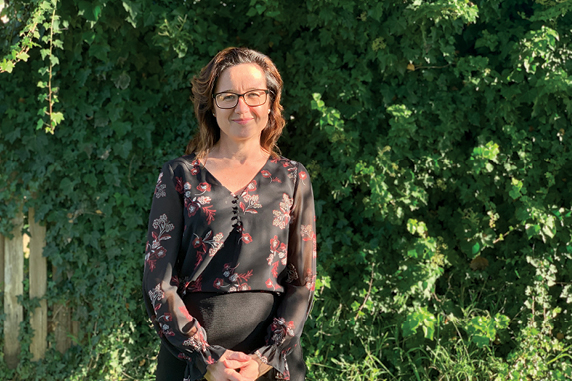
“Other people said, ‘I’ve just had enough, I’ve got to get out of here, I want a change of scenery.’”
Bega Shire covers communities such as Cobargo, which was ravaged by bushfire on the last day of 2019. An earlier bushfire in 2018 wiped out dozens of homes in Tathra.
Some shell-shocked residents who lost homes sold their land because they couldn’t face rebuilding – one such client, Twyford recalls, moved to Tasmania. This year, with business confidence climbing and the boom in domestic tourism, there’s been a spike in commercial leasing work as small businesses such as beauty salons, gift shops and cafes open in Bega.
To handle it all, Twyford’s firm – comprising two partners, herself and support staff – implemented new systems using Zoom and advising clients over email.
“We’ve also started seeing clients outside – we’ve got a little garden out there,” she says. “If they had to come [to the office] we’d have them 1.5 metres away across a table and we’d sit outside and do it. We’ve been very proactive in making it work for us. We went with it – it was good for our firm and also good for our morale.”
Twyford, who sings and plays keyboard in the cover band Mel T and the Mix, found her own morale uplifted as holidaymakers flocked back to the South Coast and restrictions lifted, allowing live music to make a comeback. “I haven’t had a weekend off in the past two months,” she says happily.
“We saw a lot of older people who are healthy – they don’t feel their time’s up yet – but [the pandemic] encouraged them to get their stuff in order just in case.”
Melinda Twyford
In Dubbo in the NSW Central West, Duffy Elliott Lawyers has staff morale-boosting down to a fine (carb-loaded) art. Senior associate at the firm Jennifer Spear says: “We’re pretty known for having regular morning teas. It can be any day – we’ll use any excuse such as a birthday, celebrating a milestone, whatever it might be. It’s a bit of pot luck – we just bring something in ourselves. Some of the staff really enjoy cooking.”
These collegial get-togethers were sorely missed in the pandemic’s early days, but staff members were soon back in the office dealing with a tsunami of work.
“A lot of clients got a good dose of reality and were reminded of their own mortality,” says Spear. “I work in wills and estates, and wills [work] went up astronomically. People wanted to be that little bit more secure. I had a couple in the medical field who wanted to make sure they had everything in order on the off-chance the situation might get worse. Even with property purchases, I think people wanted to be secure in having a place to reside.”
Clients also had to get used to the firm’s brand new “no-handshakes” rule.
“Out in these country areas, people like the human touch,” says Spear, who’s lived in Dubbo for six years and adores the warmth of the regional city’s residents.
“That’s what you go to your lawyer for – a bit of a yarn as well as the legal work.”
Spear’s other specialty area is crime.
“That did slow down for me a little bit but, since the courts opened back up, it’s just astronomical,” says Spear, whose office conveniently sits opposite Dubbo’s police station and courthouse. “They’ve all just come out of lockdown and are going a bit wild.”
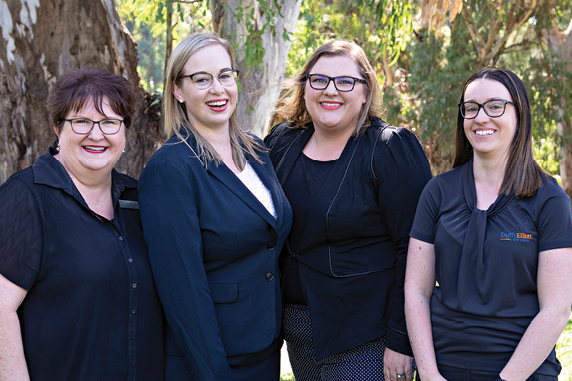
Her colleagues were kept busy in another area, with government grants stimulating a surge in building and development contracts that came with tight deadlines. With the rise of remote working across the board, city tree-changers are flocking to Dubbo “for the lifestyle”, says Spear.
“Everyone is wanting to go regional,” she says. Duffy Elliott is so certain that business will keep on booming that there will soon be two new faces scoffing morning tea, as another solicitor and staff member join the ranks.
“A lot of clients got a good dose of reality and were reminded of their own mortality. I work in wills and estates, and wills [work] went up astronomically. People wanted to be that little bit more secure.”
Jennifer Spear
Not every person who’s needed legal advice during the pandemic can afford a private practice. Justine O’Reilly is the principal solicitor at Nowra’s Shoalcoast Community Legal Centre, a not-for-profit community legal centre that services a vast area incorporating the Shoalhaven, Eurobodalla, Bega Valley, Queanbeyan-Palerang and Snowy Monaro local government areas. She and her team of eight generalist solicitors were run off their feet during 2020, giving civil, employment, tenancy and family law advice and assistance, conducting community legal education and lobbying for law reform. As part of their work, they provide outreach services within the region. After pausing for about two months, they resumed seeing clients.
“We knew, particularly for older people, they needed that face-to-face [interaction],” she says. “Funnily enough, it was the most vulnerable who wanted to come back to face-to-face – partly because it was human contact. We would wear gloves and masks, and we had portable glass screens between us – we pop those in the back of the car and bring them with us.”
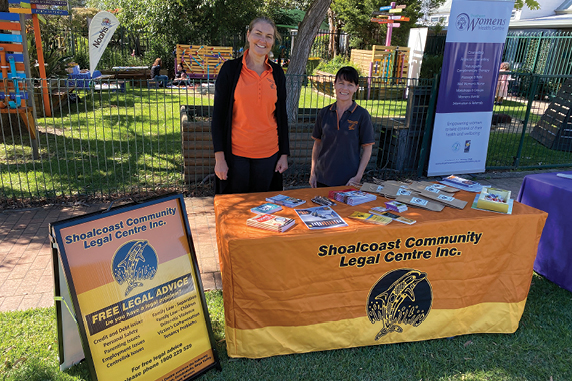
As she and her team listened to the stories, O’Reilly noted an alarming surge in tenancy issues.
“Homelessness is a big area that we’re concerned about,” she says. One recurring issue is insecure tenancies in caravan parks, “yet there’s nowhere else for people to go. There’s less than 1 per cent available tenancies on the South Coast at the moment. We’re finding a lot of people at risk of homelessness or who are homeless and we’re trying to help them.”
Following the 2019-20 summer bushfires, the centre also saw clients concerned about bushfire-affected trees. “There were dangerous trees falling on people’s property after the fires and they wanted to know [which organisation] was responsible for that,” she says.
Her team was expecting to field more queries about credit and debt issues but “we actually haven’t, which is strange but I know it’s coming” as the end of JobKeeper and increased JobSeeker payments start to bite.
“I think we’re going to see increased poverty on the South Coast,” she says.
“Funnily enough, it was the most vulnerable who wanted to come back to face-to-face – partly because it was human contact. We would wear gloves and masks, and we had portable glass screens between us – we pop those in the back of the car and bring them with us.”
Justine O’Reilly
Being at the coalface like this, dealing with some of society’s most disadvantaged people, has given O’Reilly a front-row view of the pandemic’s devastating and ongoing effects.
“There have definitely been more clients with more mental health issues,” she says. “What we find is when people are disadvantaged and they have one problem, it evolves into many problems.”

